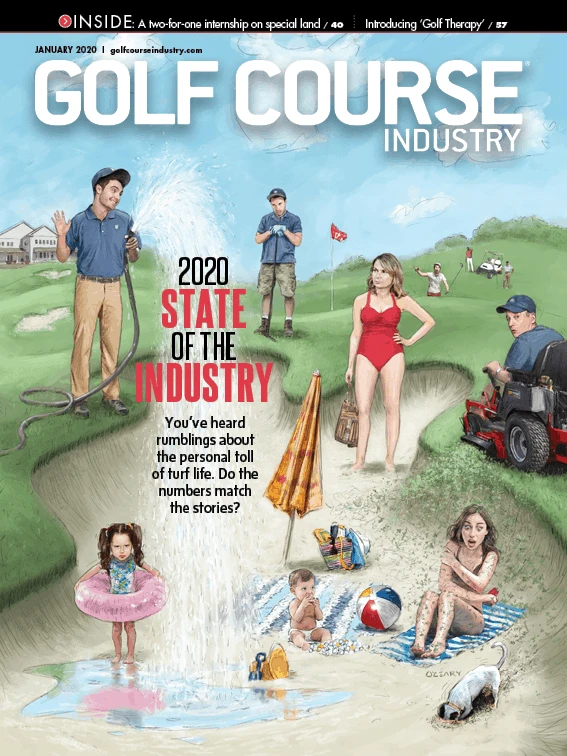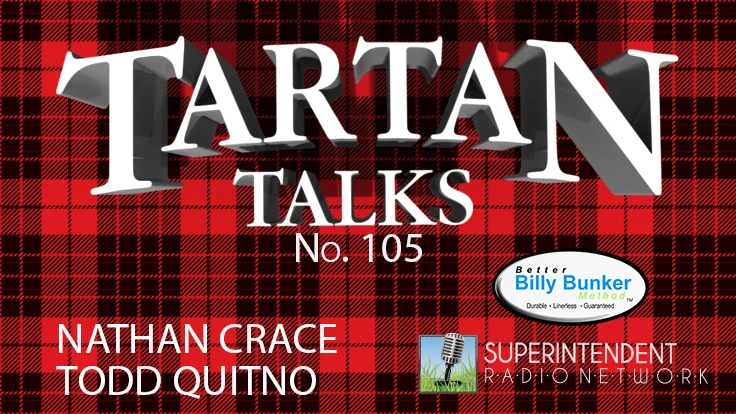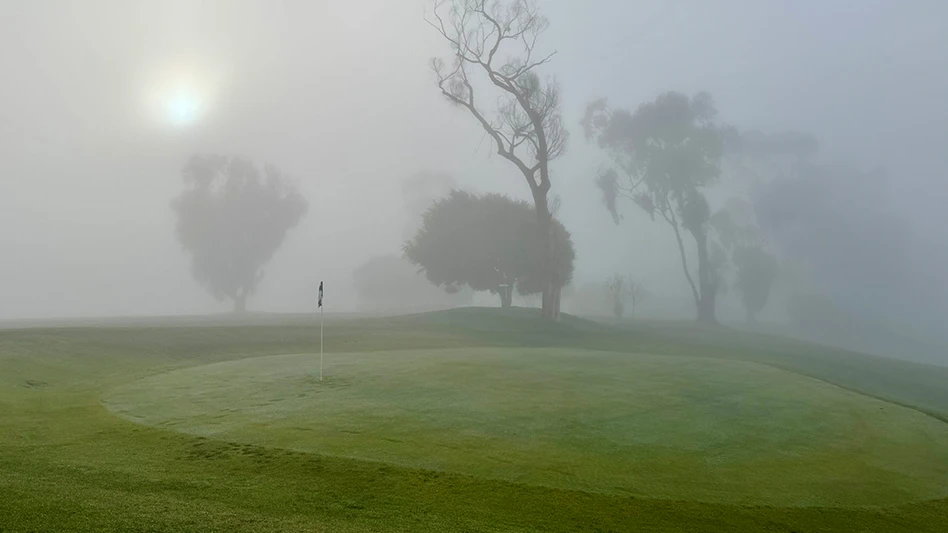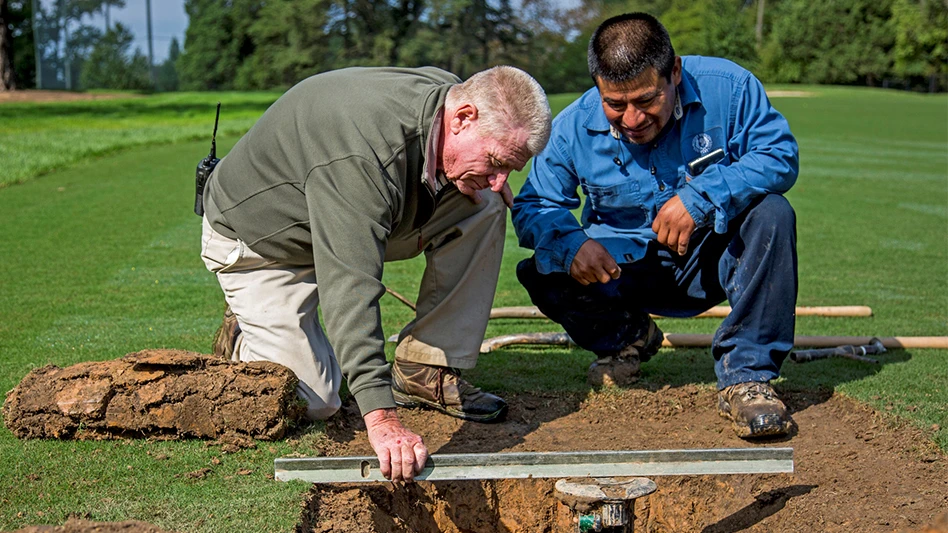Golf course superintendents would rather watch their favorite team than attend a family reunion or play cards with their spouse and children.
Of all the discoveries in our 2020 State of the Industry survey – and when answers are tabulated by region and facility type, hundreds of data points emerge – none incited a bigger initial chuckle among our staff than the results of a question about hobbies away from the golf course (page 37). Watching sports outdistanced all pursuits, including family activities, by double-digit percentage points.
Does one answer in a 33-question survey provide a complete snapshot of a group? Of course not. Even if the data suggests otherwise, superintendents aren’t choosing a few hours watching Trevor Lawrence or Tom Brady over attending a daughter’s volleyball game or a son’s parent-teacher conference. Watching sports is simply a release shared by nearly three-quarters of superintendents.
When creating this year’s survey, we opted to explore the humans responsible for producing pleasing playing surfaces. How many hours do superintendents really work? Where does job-related pressure originate? What do they enjoy away from the course?
We all hear stories about overworked and underappreciated superintendents. But are they true? Answers depend on how one interprets data. The average superintendent works 55 hours per week, according to the survey. Some might think there’s no reason to devote more than two full days per week to a job. Others might think it’s reasonable to expect a high-level manager, in any field, to work at least 55 hours per week. Here’s a secret from my sports writing days: the coach of your favorite team works more than 55 hours per week. And money doesn’t buy him or her more time with the spouse or children. Consider this before your next halftime social media rant.
Data without context means little, so we asked superintendent contributors Anthony Williams (page 24) and Ron Furlong (page 28), to describe the human impact of their respective career choices. If somebody doesn’t fully understand the profession, send them copies of Anthony’s and Ron’s highly personal articles. Matt LaWell’s conversations with seven of the more than 200 superintendents willing to answer follow-up questions to survey responses offers a third account of the superintendent lifestyle (page 33).
The section adds reason to emotionally charged discussions about the personal toll of a golf course maintenance career, because it integrates numbers and voices, creating a comprehensive look at the humanity behind courses enjoyed by millions. Superintendents, after all, are humans. They have families and hobbies. Notice the order of the last sentence.
Welcoming a golf therapist
The newest addition to our roster should excite anybody interested in golf course maintenance or architecture. We’re beginning 2020 by introducing Bradley S. Klein as a monthly columnist (page 57). A graceful writer and engaging speaker, Klein will be providing guidance based upon decades working with superintendents, architects, committees, owners and municipalities. Klein possesses a Ph.D. in political science, so it’s fitting his column is titled “Golf Therapy.”
Adding somebody with Klein’s pedigree represents a major triumph for a “trade” publication. Klein is one of the preeminent golf course architecture writers of all time and widely admired by golf enthusiasts and influential figures within the industry.
Klein’s work, which includes wonderful books such as “Discovering Donald Ross,” “Rough Meditations” and “Wide Open Fairways,” inspires readers to think practically about golf courses. His columns will make our readers savvier managers and his presence on these pages should help us expand our reach.
Superintendents and their supporters represent an amazing audience. But it doesn’t hurt the agronomic cause if customers become curious about the people and practices behind the surfaces they pay to roam. We’re hoping more golfers follow our team in 2020.
Guy Cipriano
Editor
 | Garden Center is adjusting the way the 2025 Top 100 Independent Garden Centers List is built. This year, for the first time, we are asking all retailers to report annual revenue for *only* their top-performing or flagship location. Submit your IGC for consideration on the list today.
|

Explore the January 2020 Issue
Check out more from this issue and find your next story to read.
Latest from Golf Course Industry
- Beyond the Page 65: New faces on the back page
- From the publisher’s pen: New? No way!
- Indiana course upgrades range with synthetic ‘bunkers’
- Monterey Peninsula CC Shore Course renovation almost finished
- KemperSports and Touchstone Golf announce partnership
- PBI-Gordon Company hires marketing manager Jared Hoyle
- Mountain Sky Guest Ranch announces bunker enhancement project
- GCSAA names Joshua Tapp director of environmental programs







